仁爱版九年级英语上册Unit1 Topic 2课件(共78张PPT)
文档属性
| 名称 | 仁爱版九年级英语上册Unit1 Topic 2课件(共78张PPT) |
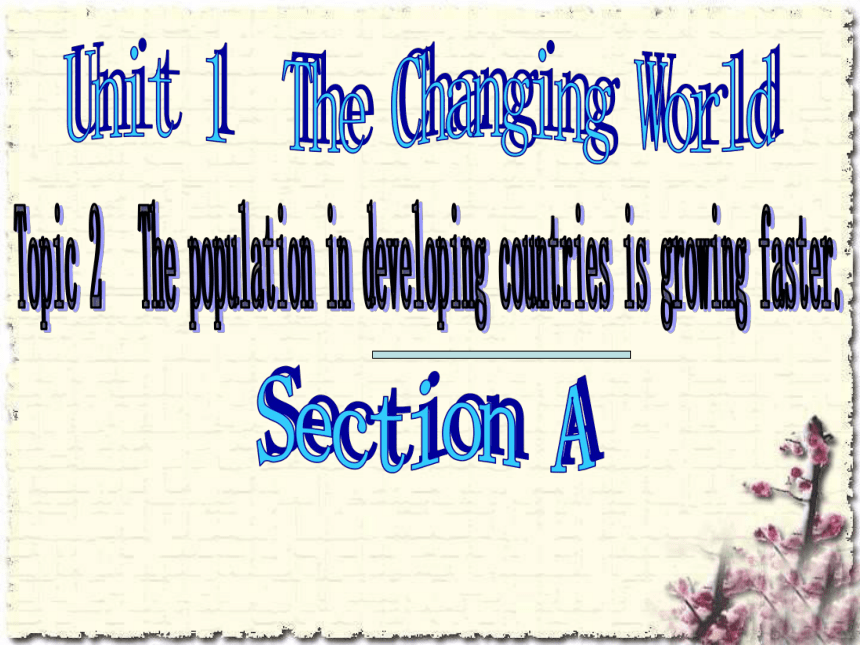
|
|
| 格式 | zip | ||
| 文件大小 | 6.0MB | ||
| 资源类型 | 教案 | ||
| 版本资源 | 科学普及版 | ||
| 科目 | 英语 | ||
| 更新时间 | 2016-12-06 00:00:00 | ||
图片预览

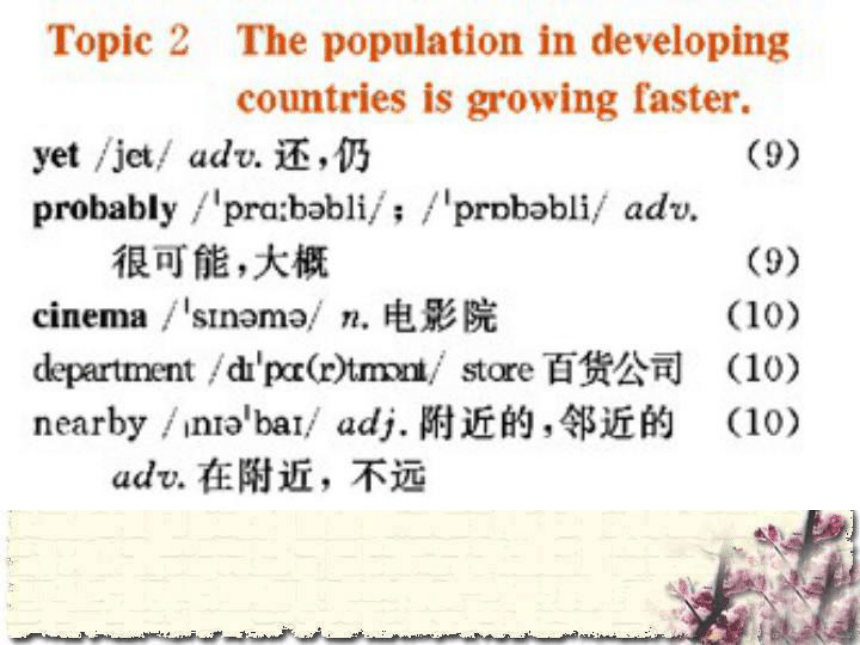
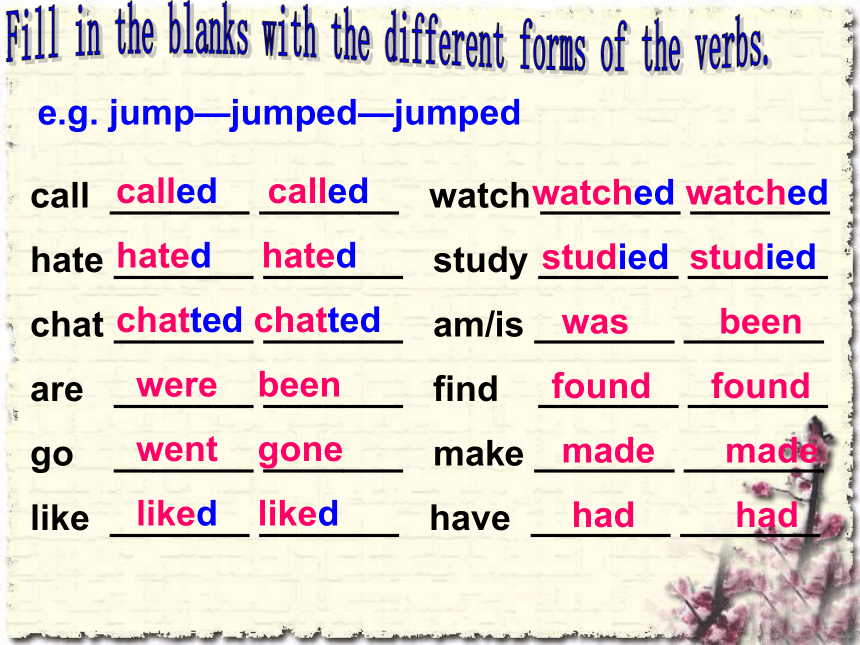
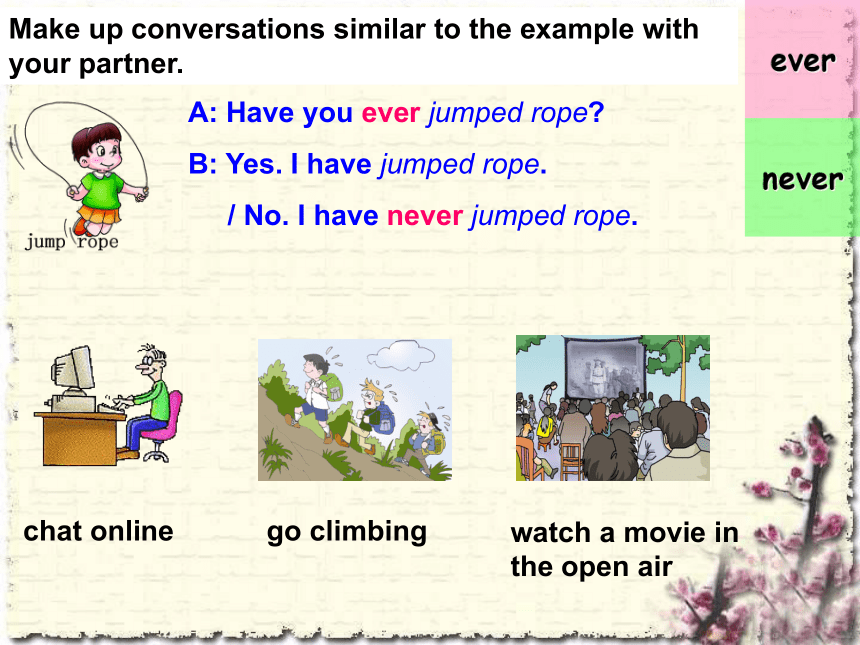
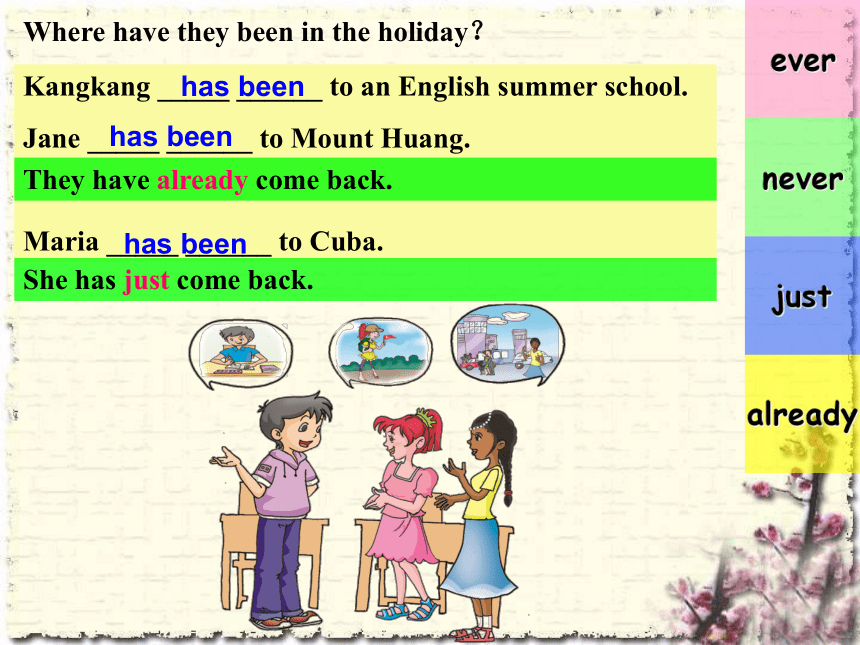
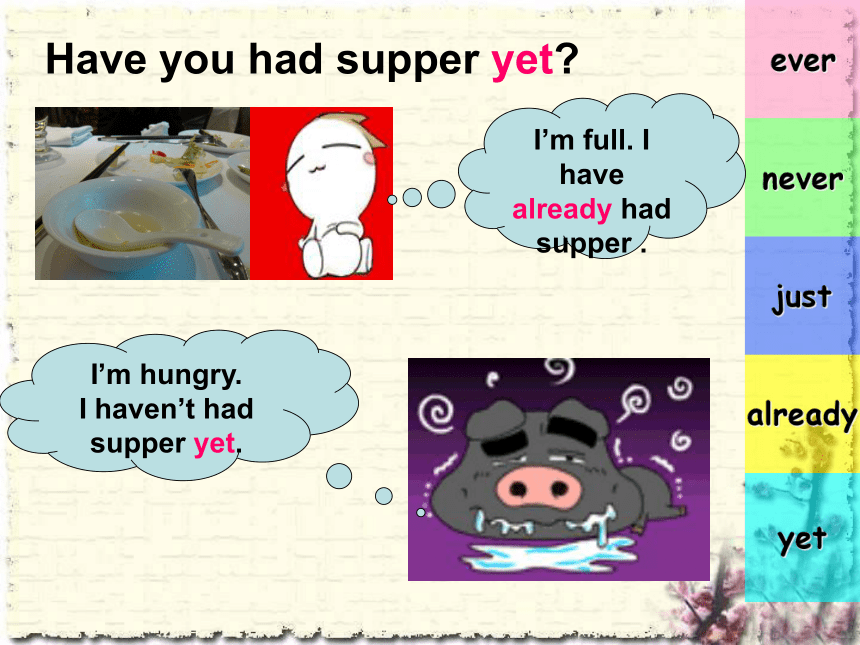
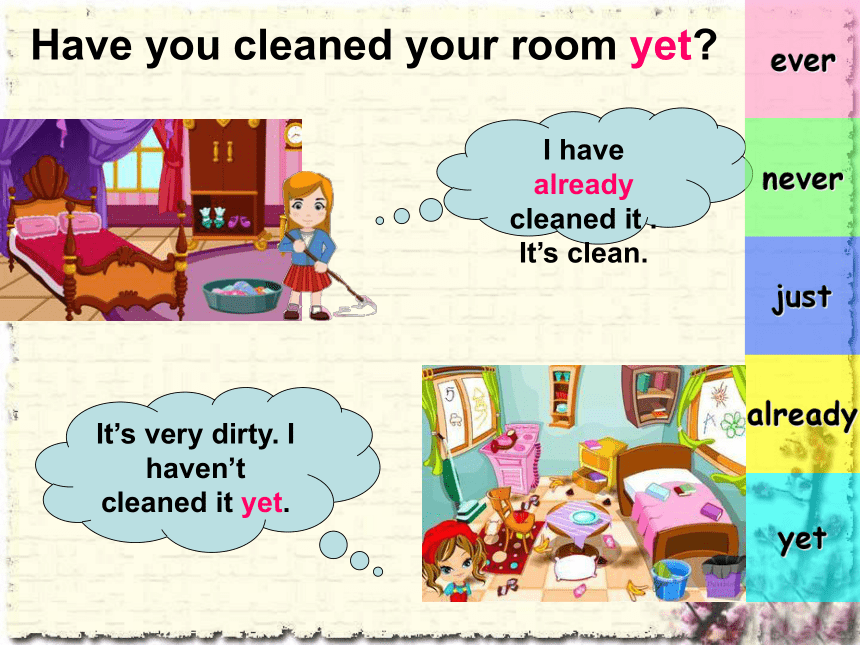
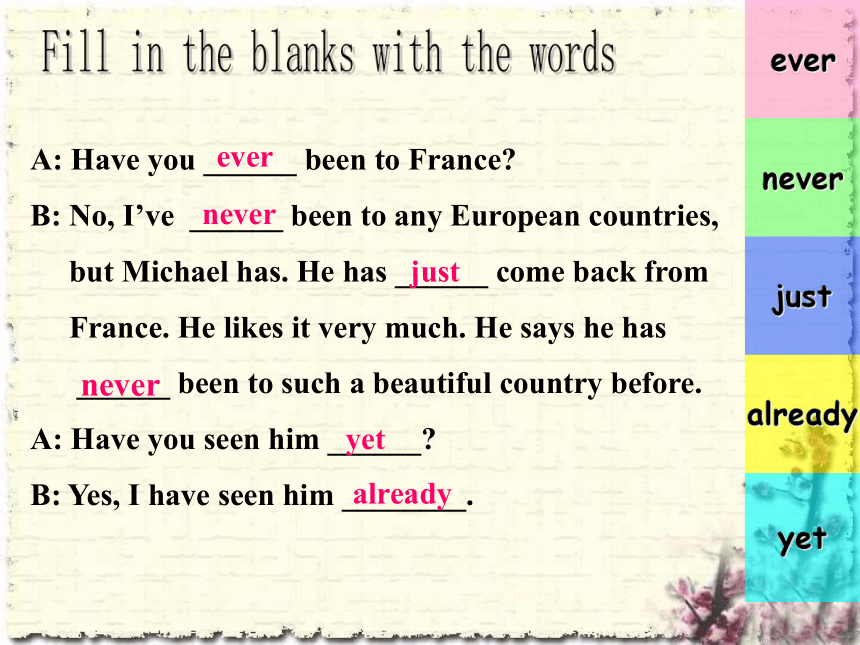
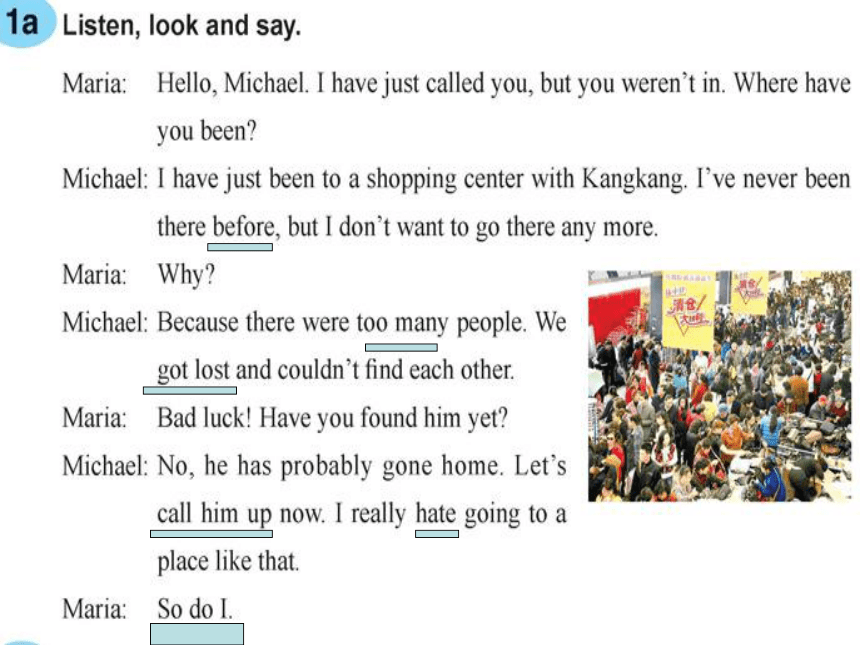
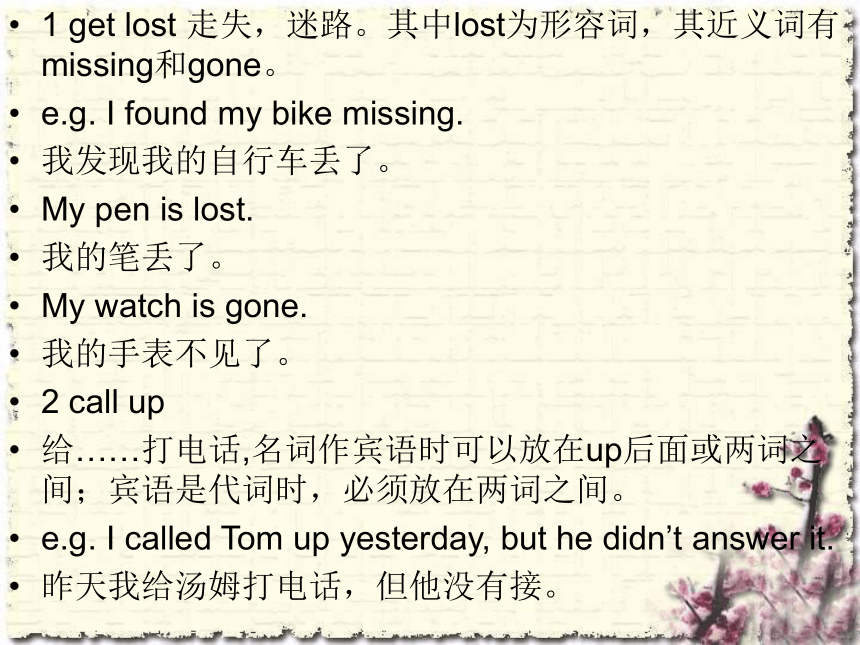
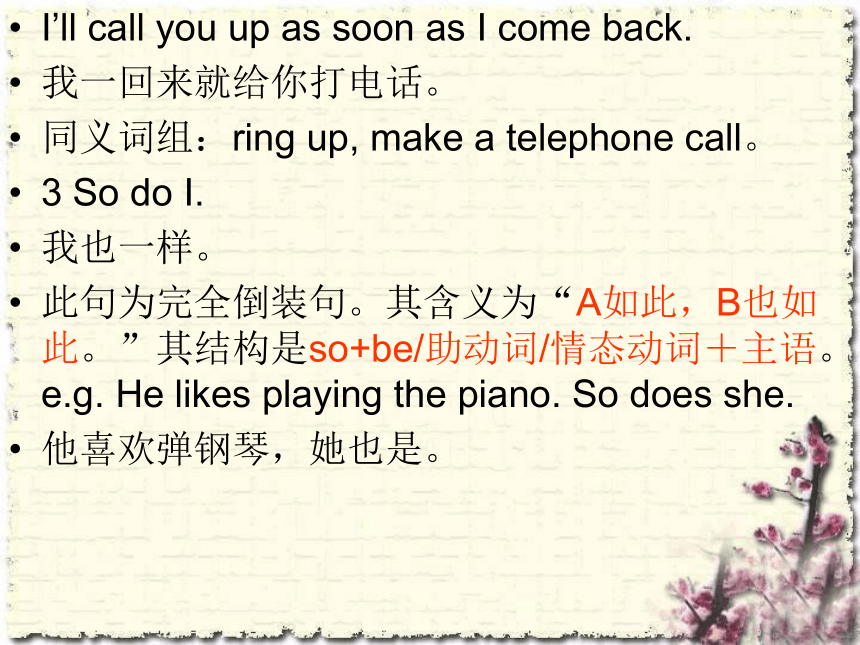
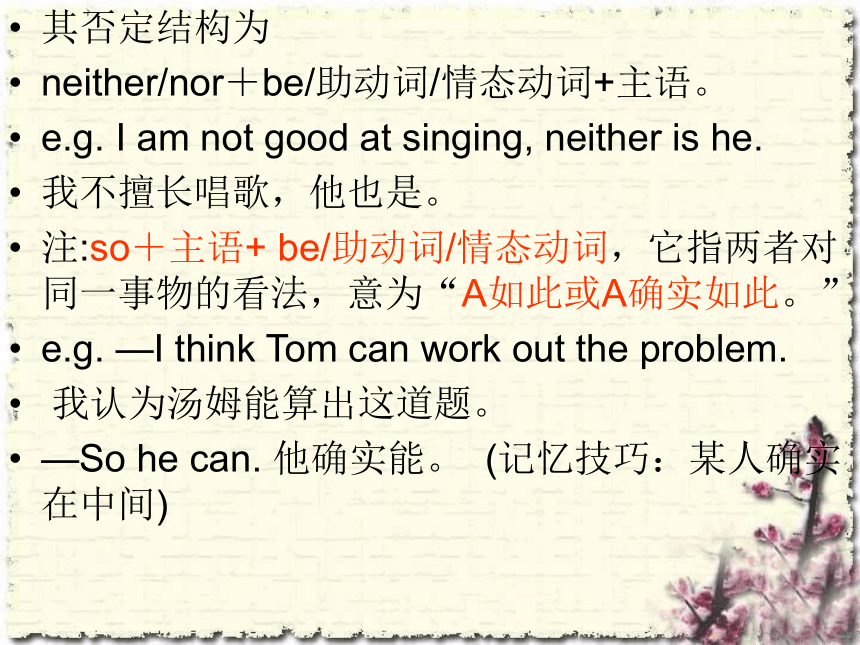
文档简介
课件78张PPT。Topic 2 The population in developing countries is growing faster.Section AUnit 1 The Changing Worldcall _______ _______ watch _______ _______
hate _______ _______ study _______ _______
chat _______ _______ am/is _______ _______
are _______ _______ find _______ _______
go _______ _______ make _______ _______
like _______ _______ have _______ _______called called
hated hated
chatted chatted
were been
went gone
liked likedwatched watched
studied studied
was been
found found
made made
had hadFill in the blanks with the different forms of the verbs. e.g. jump—jumped—jumpedA: Have you ever jumped rope?
B: Yes. I have jumped rope.
/ No. I have never jumped rope.watch a movie in the open airchat onlinego climbingMake up conversations similar to the example with your partner.everneverWhere have they been in the holiday?Kangkang _____ ______ to an English summer school.
Jane _____ ______ to Mount Huang.
Maria _____ ______ to Cuba. everneverjustalreadyhas beenhas beenhas beenThey have already come back.She has just come back.Have you had supper yet?everneverjustalreadyyetI’m hungry.
I haven’t had supper yet.I’m full. I have already had supper .Have you cleaned your room yet?It’s very dirty. I haven’t cleaned it yet.I have already cleaned it . It’s clean.everneverjustalreadyyetFill in the blanks with the wordsA: Have you ______ been to France?
B: No, I’ve ______ been to any European countries,
but Michael has. He has ______ come back from
France. He likes it very much. He says he has
______ been to such a beautiful country before.
A: Have you seen him ______?
B: Yes, I have seen him ________.everneverjustneveryetalreadyeverneverjustalreadyyet1 get lost 走失,迷路。其中lost为形容词,其近义词有missing和gone。
e.g. I found my bike missing.
我发现我的自行车丢了。
My pen is lost.
我的笔丢了。
My watch is gone.
我的手表不见了。
2 call up
给……打电话,名词作宾语时可以放在up后面或两词之间;宾语是代词时,必须放在两词之间。
e.g. I called Tom up yesterday, but he didn’t answer it.
昨天我给汤姆打电话,但他没有接。I’ll call you up as soon as I come back.
我一回来就给你打电话。
同义词组:ring up, make a telephone call。
3 So do I.
我也一样。
此句为完全倒装句。其含义为“A如此,B也如此。”其结构是so+be/助动词/情态动词+主语。e.g. He likes playing the piano. So does she.
他喜欢弹钢琴,她也是。其否定结构为
neither/nor+be/助动词/情态动词+主语。
e.g. I am not good at singing, neither is he.
我不擅长唱歌,他也是。
注:so+主语+ be/助动词/情态动词,它指两者对同一事物的看法,意为“A如此或A确实如此。”
e.g. —I think Tom can work out the problem.
我认为汤姆能算出这道题。
—So he can. 他确实能。 (记忆技巧:某人确实在中间)4 already常用于肯定句中,指动作已经发生,或比期望发生的要早,一般用在句子中间或句末;yet用于疑问句和否定句中,谈论尚未发生但可能发生的事,通常位于句末。
e.g. —Have you had your lunch yet?
你吃过午饭了吗?
—Yes, I’ve already had it.
是的,我已经吃过了。B: Ann was late for school, too. =A: Jane was late for school today.So was Ann.I really hate going to a place like that.
So do I.= I hate going to a place like that, too. So + be/情态动词/助动词+主语 — Lucy dances very well.
— ____________
A. So Lily is. B. So Lily does.
C. So is Lily. D. So does Lily.D— Mr. Zhang is not good at singing .
— ____________
A. Neither is she. B. So does she.
C. So is she. D. Neither does she.A Neither / Nor + be/情态动词/助动词+主语1c Read 1a and correct the five mistakes in the passage. Michael and Kangkang have just gone to a shopping center. They
have never been there before, but they don’t want to go there some more
because there were such many people that they couldn’t find each
other. Michael hasn’t found Kangkang already. Maybe Kangkang has
been home already. Both Michael and Maria hate going to a place like
that.
1. been
2. _____
3. _____
4. _____
5. _____
Correcting a passage is a good way to develop writing skills. any
so
yet
gone2 A. Look at the pictures and listen to the conversation. Then tick the places Steve has visited.shopping centercinemacentral parkdepartment storeB. Listen again and fill in the blanks. Then
practice the conversation with your partner.(Steve and Helen are talking on the phone.)
Steve: I have just been living here for a few days. Could you tell
me some interesting places around here?
Helen: Have you ______ been to the new shopping center?
Steve: No. I’ve ______ been there before. But I’ve ______ been to
a department store.
Helen: Then you can go there to do some shopping. By the way,
have you ______ been to the cinema nearby?
Steve: Yes, I’ve _______ watched a movie there. It is wonderful.
Helen: Have you been to the central park?
Steve: No, I haven’t been there ______.
Helen: Then, you can have a walk there.
Steve: Thank you.everneverjusteveryetalready3 Read and understand the first sentence. Then complete the second one.1. I always lose my way in New York.
I always _________in New York.
2. Yesterday Maria made a telephone call to Michael,
but he wasn’t at home.
Yesterday Maria _______ Michael ____, but he
wasn’t ____.
3. Mr. Brown is such a kind teacher that we all like him.
This teacher is so _____ that we all like him.
4. I don’t like to go to such a crowded place.
I _____ going to a crowded place _____ this.get lostcalledupinkindhatelikeChoose the best answer.
1. — Have you returned the book _______?
— Yes, I’ve _______ returned it.
A. already, already B. yet, yet
C. yet, just D. just, already
2. Jim, Maria _______ just now, but you were not at home.
A. called up you B. called you up
C. calls up you D. calls you up
3. — I find it very important to learn English well.
— _______.
A. So I am B. So do I C. So I do D. So am I
4. China is _______ that my mother likes it very much.
A. such beautiful a country
B. so a beautiful country
C. such a country beautiful
D. such a beautiful countryCBBDExercises1. She’s already been to Beijing. (改为一般疑问句)
________ she ________ to Beijing ________?
2. I have seen the film. (改为否定句)
I ________ ________ the film.
3. Kate will read this book no more. (改为同义句)
Kate ________ read this book _______ _______.
4. 孩子们在动物园里迷路了。
The children _______ _______ ________ in the zoo.Has been yethaven’t seenwon’t any morelost their wayExercisesComplete the following sentences.( )1.—Have your parents been to Russia?
—Yes. So _____ I.
A.do B.have been C.did D.have
( )2.The population of Shanghai is larger than _____ of Shenyang.
A.that B.it C.one D.this
( )3.—_____ the population of the U.S.A. in 2005?
—It _____ about 296 million.
A.What is; is B.What was; was
C.How many is; was D.How many was; isDABSection BUnit 1 The Changing WorldTopic 2 The population in developing countries is growing faster.numbers in our livesone hundred and fifty yuanthousands of peopletwo point two six (2.26) meters tall two thousand and eight Olympic Games1,000,000,000
one billion1,000,000
one million
1,000
one thousand3.14
three point one four100
one hundred Look,read and learnFirst, try to separate the number in groups of three from right to left.
Then read it in order from billion to million and thousand.How to read numbers?1 , 0 0 0 , 0 0 0 , 0 0 0billionmillionthousand1 0 0 0 0 0 0 0 0 0 2 Listen and read the numbers, paying special attention to the intonation. Then read the other numbers with your partner.543.7
five hundred and forty-three point seven
1 562
one thousand, five hundred and sixty-two
6 004 001
six million, four thousand and one
7 198 764 502
seven billion, one hundred and ninety-eight million, seven hundred and sixty-four thousand, five hundred and two973
nine hundred and seventy-three
3 980
three thousand , nine hundred and eighty
98 721
ninety-eight thousand , seven hundred and twenty-one
768 540
seven hundred and sixty-eight thousand , five hundred and forty2 346 780
two million, three hundred and forty-six thousand, seven hundred and eighty
82 346 580
eighty-two million, three hundred and forty-six thousand, five hundred and eighty
405 000 000
four hundred and five million
5 555 555 555
five billion, five hundred and fifty-five million, five hundred and fifty-five thousand, five hundred and fifty-five 6800808080The population is increasing by 80 million every year.= The world has a population of 6.8 billion.What a large population!1 population意为“人口”,“居民”,常用形容词large或small来表示人口的多少。
China has the largest population in the world.
中国拥有世界上最多的人口。
注: 常用句式:What’s the population of...?
意为“……人口是多少?”
have a pupulation of... 意为
“有……人口”
e.g. China has a pupulation of 1.3billion.
中国有13亿人口。2 increase v.
(使)增加,(使)增大,增多。
increase by+倍数或百分数,
表示“增加了……倍或百分之……”。
e.g. Compared with last year, our pay has increased by three times.
与去年相比,我们的工资增长了3倍。
increase to+具体的增长后的数字,表示
“增加到了……”。
e.g. Our rice output has increased to 6 million tons this year.
我们的水稻产量今年增长到了600万吨。3 carry out 实行,进行,执行。
e.g. It won’t be an easy plan to carry out.
那并不是一个容易实施的计划。
e.g. This is a new policy, and they will carry it out next year.
这是一项新政策,他们将在明年实施它。Make similar conversations after the example.Example:
A.: What’s the population of the world?
B: It’s about 6.8 billion.The supermarket is very crowded.
So it is. So +主语+ be/情态动词/助动词Lucy dances very well.She has cleaned the room.
So she does.
So she has.So it is. Language points确实如此。Choose the best answer.
1. — ______ is the population of Russia?
— 143 million.
A. How much B. How many
C. What D. How
2. There are ______ students in our school.
A. three thousands B. three thousands of
C. three thousand of D. three thousand
3. — Jenny always helps others.
— ______.
A. So is she B. So she is
C. So does she D. So she does
4. The population of China is ______ than that of
Japan.
A. larger B. more
C. fewer D. lessCDDAExercisese.g. The population of this city is nearly
300 000. 这个城市的人口将近三十万。
e.g. 80% of the population in China are
farmers. 中国百分之八十的人口是农民。 e.g. The population of China is very large. 中国人口众多。
The population in this area is becoming smaller and
smaller. 这个地区的人口越来越少。强调人口的具体分布或构成 (作复数) BACKpopulation集合名词 某地整体人口的数量(作单数) 通常用large/ big/ small 来修饰。 ( )4.There are sixty teachers in our school._____ of them are women.
A.Two third B.Two threes C.Two thirds D.Second three
( )5.He’s read this book before, _____?
A.hasn’t he B.doesn’t he C.isn’t he D.wasn’t he
( )6.The _____ population has caused many serious problems.
A.increase B.increased C.increasing D.increasesCACSection CUnit 1 The Changing WorldTopic 2 The population in developing countries is growing faster.8888888,88888,888888,8888,888,88888,888,888888,888,8888,888,888,88888,888,888,888888,888,888,888Tongue twister1 What problems do you think China’s large population has caused?
你觉得中国的庞大的人口数目引起了什么问题?
此句中do you think是插入语,what problems 作cause的宾语,所以do you think之后接陈述句语序。e.g. Who do you know is on duty today? 你知道今天谁值日吗?这里do you know是插入语,who在句中作主语。
2 one fifth 五分之一
要表示“几分之几的……”时,采用
“分数+ of+ ...”形式。
e.g. two thirds of the students
三分之二的学生。 英语中分数表示法为:分子采用基数词,分母采用序数词且有单/复数形式。分子大于1,分母要用复数形式。
e.g. one seventh two sevenths
七分之一, 七分之二。
注:四分之一亦作a quarter,百分数读作“基数词+percent(无复数)”。
e.g. 30%读作thirty percent。
half意为“一半,二分之一”,相当于one second或50%。3 because of+n./v.-ing
因为……。
eg. Now most families have only one child because of our country’s one-child policy.=Because our country has the one-child policy, now most families have only one child.
由于我国实施独生子女政策,现在大多数家庭只有一个孩子。
4 whole着眼于整体,接可数名词单数形式。谓语动词用第三人称单数形式。
e.g. The whole family likes watching TV.
全家人都喜爱看电视。
This whole week has passed quickly.
整个一周都过得很快。 all着重于全体中的各个部分,接不可数名词或名词复数。
e.g. All the people in the ship lost their lives.
轮船上所有人都遇难了。
5 supply: n.供应量,供给量,储备
eg. The water supply is not enough.
水的供给不足。v.(尤其大量)供应,供给,提供,
常用句型:supply sth. to sb./supply sb. with sth.eg. Our country supplies free textbooks to children.=Our country supplies children with free textbooks.
我国给孩子们提供免费的教科书。 provide, offer与supply意思相近,但用法不同。比较:provide sth. for sb./provide sb. with sth.offer sth. to sb./offer sb. sth.
6 worse and worse
越来越糟糕
比较级+and+比较级 意为“越来越……”
eg. The weather is getting colder and colder.
天气变得越来越冷了。
Our school is becoming more and more beautiful
.我们的校园变得越来越漂亮了。7 be known as...=be famous as... 以……而闻名。
Edison was famous/known as a great scientist.
爱迪生以一位伟大的科学家而闻名/著称。
8 It worked well in controlling China’s population.
它在控制中国的人口方面很有成效。
work well in doing sth.
在做某事方面很有成效。
eg. Reciting texts every day has worked well in learning English.
每天背诵课文在学习英语方面很有成效。9 thanks to
多亏了……,由于……的帮助,相当于because of ...或with the help of ...,在此短语中,to是一个介词,后接名词或代词。
eg. Thanks to the doctor, I am well again.
多亏这位医生,我身体又康复了。
thanks for 为……感谢。强调感谢的原因,后跟名词、代词、动词-ing形式。
eg. Thanks for your invitation.
谢谢你的邀请。1c Read 1a again and complete the table.1.3 billionjobenergywatercitiestrafficworsethe one-child policyliving space执行 Every minute, about 261 babies are born in the world. That means people have to _____ food for about 375 840 newborn babies every day. The world’s population _______________ faster and faster. It has _______ one of the biggest social problems today.
China ______ the largest population in the world. There are about 1.3 billion people in China. It has ________ 20 percent of the world’s population. China has ____________ some policies to control the population, and these policies have _______ well. But China still _______ a serious population problem.2 Complete the following passage with the correct forms
of the given words or phrases.findgrows/ is growingbecomecarried out reachedgrow reach have find work become face carry out hasworkedfacesChoose the best answer.
1. _____ of the students are boys in our school.
A. Two third B. Two threes
C. Two thirds D. Second three
2. The one-child policy has _____ controlling China’s
population.
A. been good at B. done well in
C. taken care of D. worked well in
3. Edison is known _____ a great inventor.
A. for B. as C. in D. on
4 ._____ your help, I made great progress in math.
A. Thanks for B. Thanks to
C. Thank to D. Thank forCDBBExercisesone sixth
one ninth
one twentieth
five sixths
two ninths
seven twentiethsATTENTIONone / a half
a quarter
three quarters
three and a halfpastnowso farSo far, I have read five English novels .( )7.—Have you found your lost book_____?
—No, I haven’t.
A.already B.yet C.still D.once
( )8. Our government should_____ measures to control the population.
A.give B.take C.put D.get
( )9. —How much is the white coat?
—It’s_____yuan.
A.one thousand, six hundred,eighty-eight
B.one thousand six hundred eighty-eight
C.one thousand, six hundred and eighty-eight
D.one thousand and six hundred and eighty-eight
( )10.—I have never visited a paper factory.
—_____
A.So have I. B.So I have.
C.Neither have I. D.I haven’t now.BBCCSection DUnit 1 The Changing WorldTopic 2 The population in developing countries is growing faster.FunctionsI really _______ going to a place like that.
____ do I.hateSo So + be/情态动词/助动词+主语 Neither / Nor + be/情态动词/助动词+主语Read through Sections A-C and fill in the blanks with the correct words.FunctionsIt is increasing _____ 80 million every year.by6800808080increase by 增加了……
increase to 增加到……Functions… the population in developing countries is ___________ that in developed countries.larger thanFunctionsChina ____ the largest population in the world, and about one _____ of the people in the world live in China.hasfifthone sixth
two ninths
seven twentiethsFunctions______ to the policy, China is developing quickly and …Thanksthe one-child policyPhrase collection给某人打电话 ___________________
lose one’s way ___________________
增加了…… ___________________
developing countries ___________________
developed countries ___________________
carry out ___________________
到目前为止 ___________________
采取措施做某事 ___________________
thanks to sb./sth. ___________________
be surrounded by ___________________
the capital of China ___________________call sb. up迷路increase by发展中国家发达国家实行so fartake measures to do sth.幸亏,由于被……所环绕中国的首都1 I live in a small mountain town called Fairmont.
我居住在一个叫Fairmont 的小山城。
called Fairmont过去分词短语放在名词后作后置定语,这里called可改为named/with the name of ...。e.g.
The boy called/named/with the name of Li Lei is my brother.
名叫李雷的那个男孩是我的弟弟。
2 interest意为“吸引力,趣味”,不可数名词。a place of interest一处名胜,
places of interest
许多名胜。There are many places of interest in our city.
我们城市有许多名胜。Grammar FocusThe train (leave).
It (leave) just now.She is doing her homework.
She (not finish)
her homework yet. has leftlefthasn’t finishedA: ______ you ________(care)
for the old before?
B: Yes. We often take part in
social activities.I know the Great Wall very well. Because I (be) there before.Have caredhave been have cleaned the clothespastnow表示过去发生的某一动作对现在造成的影响或结果。
e.g. I have just cleaned my clothes. 我刚洗过衣服。
(“洗衣服”是发生在过去的动作,对现在造成的结
果是“衣服干净了”。)
e.g. I have just had my breakfast. 我刚吃过早饭。
(对现在的影响是“不饿”。)cleaned the clothesPresent Perfect (II)常与 just, already, yet, never, ever 等副词连用。Present Perfect (II)GrammarjustneveralreadyyeteverChoose the best answer.
1. —Have you improved your English ______?
—Yes, I have. I’ve ______ improved it.
A. already; already B. already; yet
C. yet; already D. yet; yet
2. China has a______ population.
A. many B. much
C. lot of D. large
3. —Have you been to the village _______ Gum Tree? It’s
a beautiful place.
— Oh, really? I will go there some day.
A. called B. is called
C. calls D. call
4. — I like to sing English songs. What about you?
— ______
A. So I do. B. So do I.
C. Either is OK. D. Neither do I.CDABExercises
hate _______ _______ study _______ _______
chat _______ _______ am/is _______ _______
are _______ _______ find _______ _______
go _______ _______ make _______ _______
like _______ _______ have _______ _______called called
hated hated
chatted chatted
were been
went gone
liked likedwatched watched
studied studied
was been
found found
made made
had hadFill in the blanks with the different forms of the verbs. e.g. jump—jumped—jumpedA: Have you ever jumped rope?
B: Yes. I have jumped rope.
/ No. I have never jumped rope.watch a movie in the open airchat onlinego climbingMake up conversations similar to the example with your partner.everneverWhere have they been in the holiday?Kangkang _____ ______ to an English summer school.
Jane _____ ______ to Mount Huang.
Maria _____ ______ to Cuba. everneverjustalreadyhas beenhas beenhas beenThey have already come back.She has just come back.Have you had supper yet?everneverjustalreadyyetI’m hungry.
I haven’t had supper yet.I’m full. I have already had supper .Have you cleaned your room yet?It’s very dirty. I haven’t cleaned it yet.I have already cleaned it . It’s clean.everneverjustalreadyyetFill in the blanks with the wordsA: Have you ______ been to France?
B: No, I’ve ______ been to any European countries,
but Michael has. He has ______ come back from
France. He likes it very much. He says he has
______ been to such a beautiful country before.
A: Have you seen him ______?
B: Yes, I have seen him ________.everneverjustneveryetalreadyeverneverjustalreadyyet1 get lost 走失,迷路。其中lost为形容词,其近义词有missing和gone。
e.g. I found my bike missing.
我发现我的自行车丢了。
My pen is lost.
我的笔丢了。
My watch is gone.
我的手表不见了。
2 call up
给……打电话,名词作宾语时可以放在up后面或两词之间;宾语是代词时,必须放在两词之间。
e.g. I called Tom up yesterday, but he didn’t answer it.
昨天我给汤姆打电话,但他没有接。I’ll call you up as soon as I come back.
我一回来就给你打电话。
同义词组:ring up, make a telephone call。
3 So do I.
我也一样。
此句为完全倒装句。其含义为“A如此,B也如此。”其结构是so+be/助动词/情态动词+主语。e.g. He likes playing the piano. So does she.
他喜欢弹钢琴,她也是。其否定结构为
neither/nor+be/助动词/情态动词+主语。
e.g. I am not good at singing, neither is he.
我不擅长唱歌,他也是。
注:so+主语+ be/助动词/情态动词,它指两者对同一事物的看法,意为“A如此或A确实如此。”
e.g. —I think Tom can work out the problem.
我认为汤姆能算出这道题。
—So he can. 他确实能。 (记忆技巧:某人确实在中间)4 already常用于肯定句中,指动作已经发生,或比期望发生的要早,一般用在句子中间或句末;yet用于疑问句和否定句中,谈论尚未发生但可能发生的事,通常位于句末。
e.g. —Have you had your lunch yet?
你吃过午饭了吗?
—Yes, I’ve already had it.
是的,我已经吃过了。B: Ann was late for school, too. =A: Jane was late for school today.So was Ann.I really hate going to a place like that.
So do I.= I hate going to a place like that, too. So + be/情态动词/助动词+主语 — Lucy dances very well.
— ____________
A. So Lily is. B. So Lily does.
C. So is Lily. D. So does Lily.D— Mr. Zhang is not good at singing .
— ____________
A. Neither is she. B. So does she.
C. So is she. D. Neither does she.A Neither / Nor + be/情态动词/助动词+主语1c Read 1a and correct the five mistakes in the passage. Michael and Kangkang have just gone to a shopping center. They
have never been there before, but they don’t want to go there some more
because there were such many people that they couldn’t find each
other. Michael hasn’t found Kangkang already. Maybe Kangkang has
been home already. Both Michael and Maria hate going to a place like
that.
1. been
2. _____
3. _____
4. _____
5. _____
Correcting a passage is a good way to develop writing skills. any
so
yet
gone2 A. Look at the pictures and listen to the conversation. Then tick the places Steve has visited.shopping centercinemacentral parkdepartment storeB. Listen again and fill in the blanks. Then
practice the conversation with your partner.(Steve and Helen are talking on the phone.)
Steve: I have just been living here for a few days. Could you tell
me some interesting places around here?
Helen: Have you ______ been to the new shopping center?
Steve: No. I’ve ______ been there before. But I’ve ______ been to
a department store.
Helen: Then you can go there to do some shopping. By the way,
have you ______ been to the cinema nearby?
Steve: Yes, I’ve _______ watched a movie there. It is wonderful.
Helen: Have you been to the central park?
Steve: No, I haven’t been there ______.
Helen: Then, you can have a walk there.
Steve: Thank you.everneverjusteveryetalready3 Read and understand the first sentence. Then complete the second one.1. I always lose my way in New York.
I always _________in New York.
2. Yesterday Maria made a telephone call to Michael,
but he wasn’t at home.
Yesterday Maria _______ Michael ____, but he
wasn’t ____.
3. Mr. Brown is such a kind teacher that we all like him.
This teacher is so _____ that we all like him.
4. I don’t like to go to such a crowded place.
I _____ going to a crowded place _____ this.get lostcalledupinkindhatelikeChoose the best answer.
1. — Have you returned the book _______?
— Yes, I’ve _______ returned it.
A. already, already B. yet, yet
C. yet, just D. just, already
2. Jim, Maria _______ just now, but you were not at home.
A. called up you B. called you up
C. calls up you D. calls you up
3. — I find it very important to learn English well.
— _______.
A. So I am B. So do I C. So I do D. So am I
4. China is _______ that my mother likes it very much.
A. such beautiful a country
B. so a beautiful country
C. such a country beautiful
D. such a beautiful countryCBBDExercises1. She’s already been to Beijing. (改为一般疑问句)
________ she ________ to Beijing ________?
2. I have seen the film. (改为否定句)
I ________ ________ the film.
3. Kate will read this book no more. (改为同义句)
Kate ________ read this book _______ _______.
4. 孩子们在动物园里迷路了。
The children _______ _______ ________ in the zoo.Has been yethaven’t seenwon’t any morelost their wayExercisesComplete the following sentences.( )1.—Have your parents been to Russia?
—Yes. So _____ I.
A.do B.have been C.did D.have
( )2.The population of Shanghai is larger than _____ of Shenyang.
A.that B.it C.one D.this
( )3.—_____ the population of the U.S.A. in 2005?
—It _____ about 296 million.
A.What is; is B.What was; was
C.How many is; was D.How many was; isDABSection BUnit 1 The Changing WorldTopic 2 The population in developing countries is growing faster.numbers in our livesone hundred and fifty yuanthousands of peopletwo point two six (2.26) meters tall two thousand and eight Olympic Games1,000,000,000
one billion1,000,000
one million
1,000
one thousand3.14
three point one four100
one hundred Look,read and learnFirst, try to separate the number in groups of three from right to left.
Then read it in order from billion to million and thousand.How to read numbers?1 , 0 0 0 , 0 0 0 , 0 0 0billionmillionthousand1 0 0 0 0 0 0 0 0 0 2 Listen and read the numbers, paying special attention to the intonation. Then read the other numbers with your partner.543.7
five hundred and forty-three point seven
1 562
one thousand, five hundred and sixty-two
6 004 001
six million, four thousand and one
7 198 764 502
seven billion, one hundred and ninety-eight million, seven hundred and sixty-four thousand, five hundred and two973
nine hundred and seventy-three
3 980
three thousand , nine hundred and eighty
98 721
ninety-eight thousand , seven hundred and twenty-one
768 540
seven hundred and sixty-eight thousand , five hundred and forty2 346 780
two million, three hundred and forty-six thousand, seven hundred and eighty
82 346 580
eighty-two million, three hundred and forty-six thousand, five hundred and eighty
405 000 000
four hundred and five million
5 555 555 555
five billion, five hundred and fifty-five million, five hundred and fifty-five thousand, five hundred and fifty-five 6800808080The population is increasing by 80 million every year.= The world has a population of 6.8 billion.What a large population!1 population意为“人口”,“居民”,常用形容词large或small来表示人口的多少。
China has the largest population in the world.
中国拥有世界上最多的人口。
注: 常用句式:What’s the population of...?
意为“……人口是多少?”
have a pupulation of... 意为
“有……人口”
e.g. China has a pupulation of 1.3billion.
中国有13亿人口。2 increase v.
(使)增加,(使)增大,增多。
increase by+倍数或百分数,
表示“增加了……倍或百分之……”。
e.g. Compared with last year, our pay has increased by three times.
与去年相比,我们的工资增长了3倍。
increase to+具体的增长后的数字,表示
“增加到了……”。
e.g. Our rice output has increased to 6 million tons this year.
我们的水稻产量今年增长到了600万吨。3 carry out 实行,进行,执行。
e.g. It won’t be an easy plan to carry out.
那并不是一个容易实施的计划。
e.g. This is a new policy, and they will carry it out next year.
这是一项新政策,他们将在明年实施它。Make similar conversations after the example.Example:
A.: What’s the population of the world?
B: It’s about 6.8 billion.The supermarket is very crowded.
So it is. So +主语+ be/情态动词/助动词Lucy dances very well.She has cleaned the room.
So she does.
So she has.So it is. Language points确实如此。Choose the best answer.
1. — ______ is the population of Russia?
— 143 million.
A. How much B. How many
C. What D. How
2. There are ______ students in our school.
A. three thousands B. three thousands of
C. three thousand of D. three thousand
3. — Jenny always helps others.
— ______.
A. So is she B. So she is
C. So does she D. So she does
4. The population of China is ______ than that of
Japan.
A. larger B. more
C. fewer D. lessCDDAExercisese.g. The population of this city is nearly
300 000. 这个城市的人口将近三十万。
e.g. 80% of the population in China are
farmers. 中国百分之八十的人口是农民。 e.g. The population of China is very large. 中国人口众多。
The population in this area is becoming smaller and
smaller. 这个地区的人口越来越少。强调人口的具体分布或构成 (作复数) BACKpopulation集合名词 某地整体人口的数量(作单数) 通常用large/ big/ small 来修饰。 ( )4.There are sixty teachers in our school._____ of them are women.
A.Two third B.Two threes C.Two thirds D.Second three
( )5.He’s read this book before, _____?
A.hasn’t he B.doesn’t he C.isn’t he D.wasn’t he
( )6.The _____ population has caused many serious problems.
A.increase B.increased C.increasing D.increasesCACSection CUnit 1 The Changing WorldTopic 2 The population in developing countries is growing faster.8888888,88888,888888,8888,888,88888,888,888888,888,8888,888,888,88888,888,888,888888,888,888,888Tongue twister1 What problems do you think China’s large population has caused?
你觉得中国的庞大的人口数目引起了什么问题?
此句中do you think是插入语,what problems 作cause的宾语,所以do you think之后接陈述句语序。e.g. Who do you know is on duty today? 你知道今天谁值日吗?这里do you know是插入语,who在句中作主语。
2 one fifth 五分之一
要表示“几分之几的……”时,采用
“分数+ of+ ...”形式。
e.g. two thirds of the students
三分之二的学生。 英语中分数表示法为:分子采用基数词,分母采用序数词且有单/复数形式。分子大于1,分母要用复数形式。
e.g. one seventh two sevenths
七分之一, 七分之二。
注:四分之一亦作a quarter,百分数读作“基数词+percent(无复数)”。
e.g. 30%读作thirty percent。
half意为“一半,二分之一”,相当于one second或50%。3 because of+n./v.-ing
因为……。
eg. Now most families have only one child because of our country’s one-child policy.=Because our country has the one-child policy, now most families have only one child.
由于我国实施独生子女政策,现在大多数家庭只有一个孩子。
4 whole着眼于整体,接可数名词单数形式。谓语动词用第三人称单数形式。
e.g. The whole family likes watching TV.
全家人都喜爱看电视。
This whole week has passed quickly.
整个一周都过得很快。 all着重于全体中的各个部分,接不可数名词或名词复数。
e.g. All the people in the ship lost their lives.
轮船上所有人都遇难了。
5 supply: n.供应量,供给量,储备
eg. The water supply is not enough.
水的供给不足。v.(尤其大量)供应,供给,提供,
常用句型:supply sth. to sb./supply sb. with sth.eg. Our country supplies free textbooks to children.=Our country supplies children with free textbooks.
我国给孩子们提供免费的教科书。 provide, offer与supply意思相近,但用法不同。比较:provide sth. for sb./provide sb. with sth.offer sth. to sb./offer sb. sth.
6 worse and worse
越来越糟糕
比较级+and+比较级 意为“越来越……”
eg. The weather is getting colder and colder.
天气变得越来越冷了。
Our school is becoming more and more beautiful
.我们的校园变得越来越漂亮了。7 be known as...=be famous as... 以……而闻名。
Edison was famous/known as a great scientist.
爱迪生以一位伟大的科学家而闻名/著称。
8 It worked well in controlling China’s population.
它在控制中国的人口方面很有成效。
work well in doing sth.
在做某事方面很有成效。
eg. Reciting texts every day has worked well in learning English.
每天背诵课文在学习英语方面很有成效。9 thanks to
多亏了……,由于……的帮助,相当于because of ...或with the help of ...,在此短语中,to是一个介词,后接名词或代词。
eg. Thanks to the doctor, I am well again.
多亏这位医生,我身体又康复了。
thanks for 为……感谢。强调感谢的原因,后跟名词、代词、动词-ing形式。
eg. Thanks for your invitation.
谢谢你的邀请。1c Read 1a again and complete the table.1.3 billionjobenergywatercitiestrafficworsethe one-child policyliving space执行 Every minute, about 261 babies are born in the world. That means people have to _____ food for about 375 840 newborn babies every day. The world’s population _______________ faster and faster. It has _______ one of the biggest social problems today.
China ______ the largest population in the world. There are about 1.3 billion people in China. It has ________ 20 percent of the world’s population. China has ____________ some policies to control the population, and these policies have _______ well. But China still _______ a serious population problem.2 Complete the following passage with the correct forms
of the given words or phrases.findgrows/ is growingbecomecarried out reachedgrow reach have find work become face carry out hasworkedfacesChoose the best answer.
1. _____ of the students are boys in our school.
A. Two third B. Two threes
C. Two thirds D. Second three
2. The one-child policy has _____ controlling China’s
population.
A. been good at B. done well in
C. taken care of D. worked well in
3. Edison is known _____ a great inventor.
A. for B. as C. in D. on
4 ._____ your help, I made great progress in math.
A. Thanks for B. Thanks to
C. Thank to D. Thank forCDBBExercisesone sixth
one ninth
one twentieth
five sixths
two ninths
seven twentiethsATTENTIONone / a half
a quarter
three quarters
three and a halfpastnowso farSo far, I have read five English novels .( )7.—Have you found your lost book_____?
—No, I haven’t.
A.already B.yet C.still D.once
( )8. Our government should_____ measures to control the population.
A.give B.take C.put D.get
( )9. —How much is the white coat?
—It’s_____yuan.
A.one thousand, six hundred,eighty-eight
B.one thousand six hundred eighty-eight
C.one thousand, six hundred and eighty-eight
D.one thousand and six hundred and eighty-eight
( )10.—I have never visited a paper factory.
—_____
A.So have I. B.So I have.
C.Neither have I. D.I haven’t now.BBCCSection DUnit 1 The Changing WorldTopic 2 The population in developing countries is growing faster.FunctionsI really _______ going to a place like that.
____ do I.hateSo So + be/情态动词/助动词+主语 Neither / Nor + be/情态动词/助动词+主语Read through Sections A-C and fill in the blanks with the correct words.FunctionsIt is increasing _____ 80 million every year.by6800808080increase by 增加了……
increase to 增加到……Functions… the population in developing countries is ___________ that in developed countries.larger thanFunctionsChina ____ the largest population in the world, and about one _____ of the people in the world live in China.hasfifthone sixth
two ninths
seven twentiethsFunctions______ to the policy, China is developing quickly and …Thanksthe one-child policyPhrase collection给某人打电话 ___________________
lose one’s way ___________________
增加了…… ___________________
developing countries ___________________
developed countries ___________________
carry out ___________________
到目前为止 ___________________
采取措施做某事 ___________________
thanks to sb./sth. ___________________
be surrounded by ___________________
the capital of China ___________________call sb. up迷路increase by发展中国家发达国家实行so fartake measures to do sth.幸亏,由于被……所环绕中国的首都1 I live in a small mountain town called Fairmont.
我居住在一个叫Fairmont 的小山城。
called Fairmont过去分词短语放在名词后作后置定语,这里called可改为named/with the name of ...。e.g.
The boy called/named/with the name of Li Lei is my brother.
名叫李雷的那个男孩是我的弟弟。
2 interest意为“吸引力,趣味”,不可数名词。a place of interest一处名胜,
places of interest
许多名胜。There are many places of interest in our city.
我们城市有许多名胜。Grammar FocusThe train (leave).
It (leave) just now.She is doing her homework.
She (not finish)
her homework yet. has leftlefthasn’t finishedA: ______ you ________(care)
for the old before?
B: Yes. We often take part in
social activities.I know the Great Wall very well. Because I (be) there before.Have caredhave been have cleaned the clothespastnow表示过去发生的某一动作对现在造成的影响或结果。
e.g. I have just cleaned my clothes. 我刚洗过衣服。
(“洗衣服”是发生在过去的动作,对现在造成的结
果是“衣服干净了”。)
e.g. I have just had my breakfast. 我刚吃过早饭。
(对现在的影响是“不饿”。)cleaned the clothesPresent Perfect (II)常与 just, already, yet, never, ever 等副词连用。Present Perfect (II)GrammarjustneveralreadyyeteverChoose the best answer.
1. —Have you improved your English ______?
—Yes, I have. I’ve ______ improved it.
A. already; already B. already; yet
C. yet; already D. yet; yet
2. China has a______ population.
A. many B. much
C. lot of D. large
3. —Have you been to the village _______ Gum Tree? It’s
a beautiful place.
— Oh, really? I will go there some day.
A. called B. is called
C. calls D. call
4. — I like to sing English songs. What about you?
— ______
A. So I do. B. So do I.
C. Either is OK. D. Neither do I.CDABExercises
同课章节目录
- Unit 1 The Changing World
- Topic 1 Our country has developed rapidly.
- Topic 2 The population in developing countries is
- Topic 3 The world has changed for the better.
- Unit 2 Saving the earth.
- Topic 1 Pollution has causes too many problems.
- Topic 2 All these problems are very serious.
- Topic 3 What can we do to protect the environment
- Unit 3 English around the World
- Topic 1 English is widely spoken around the world.
- Topic 2 Some things usually have different meaning
- Topic 3 Could you give us some advice on how to l
- Unit 4 Amazing Science
- Topic 1 When was it invented?
- Topic 2 I'm excited about the things that will be
- Topic 3 China is the third nation that sent a pers
